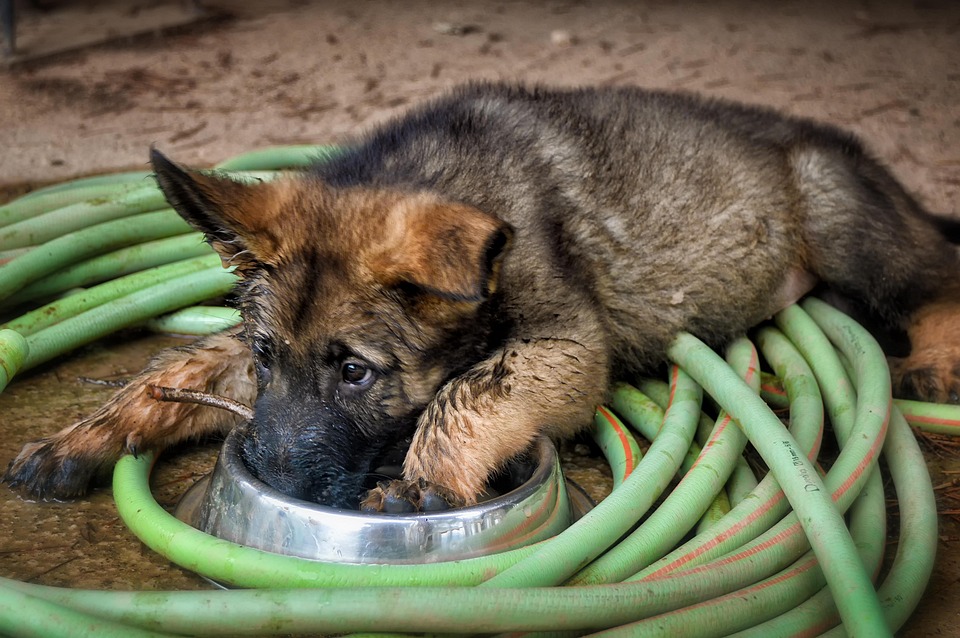Coping with Fear of Loud Noises in the Home: Understanding and Helping Your Dog
Loud noises can be terrifying for dogs, causing them to experience fear and anxiety. Whether it’s thunderstorms, fireworks, or even household appliances, a dog’s fear of loud noises can lead to destructive behavior, excessive barking, and even aggression. As a responsible dog owner, it’s essential to understand and address your furry companion’s fear to ensure their well-being. In this article, we will delve into the causes of noise-related anxiety in dogs and provide effective strategies to help them cope. Additionally, we’ve compiled a list of frequently asked questions to further assist you in managing your dog’s fear.
Understanding the Causes of Fear of Loud Noises in Dogs
1. Sensitive Hearing: Unleashing the Science Behind It
Dogs’ hearing abilities differ from humans in several ways. They can hear a wider range of frequencies and at much higher volumes. This heightened sense of hearing makes certain noises, such as thunder or fireworks, more frightening for dogs.
2. Negative Experiences and Trauma
Past traumatic experiences can contribute to noise-related anxiety. For example, if a dog had a negative experience during a thunderstorm, they may develop a fear of loud noises. Common triggers for fear can include fireworks, construction sounds, or even vacuum cleaners.
3. Lack of Exposure and Socialization
Limited exposure to loud noises during puppyhood can make dogs more susceptible to noise-related anxiety. Proper socialization, which includes gradually introducing puppies to various sounds, can help prevent or reduce fear of loud noises later in life.
Recognizing the Signs of Noise-Related Anxiety in Dogs
1. Behavioral Indicators of Fear
Excessive barking, whining, or howling are common signs of fear in dogs. They may also engage in destructive behavior, such as chewing furniture or digging holes, as an outlet for their anxiety. Additionally, dogs may try to escape or hide in an attempt to seek safety.
2. Physical Symptoms of Anxiety
Physical symptoms of anxiety in dogs include trembling or shaking, pacing or restlessness, and excessive drooling. These symptoms may be accompanied by a rapid heart rate or dilated pupils.
Strategies to Help Dogs Cope with Fear of Loud Noises
1. Create a Safe Haven
Designate a comfortable, secure space for your dog where they can retreat during loud noises. This can be a crate with their favorite bedding or a room with minimal noise. Utilizing white noise or calming music can also help drown out loud noises and create a more soothing environment.
2. Desensitization and Counterconditioning
Gradually expose your dog to recorded or distant loud noises while providing positive experiences and rewards. Start with low volumes and gradually increase the intensity over time. This technique helps dogs associate loud noises with positive outcomes, reducing their fear and anxiety.
3. Professional Assistance
If your dog’s fear of loud noises is severe or persists despite your efforts, consider consulting with a professional dog trainer or behaviorist. They can provide personalized guidance and develop a tailored training plan for your dog. In some cases, medication may be prescribed to help manage severe anxiety.
Frequently Asked Questions (FAQs)
1. Can I reinforce my dog’s fear of loud noises by comforting them during these situations?
Comforting your dog during loud noises does not reinforce fear. Instead, it provides them with a sense of security and can help calm their anxiety. However, avoid excessive coddling or reinforcing fearful behaviors.
2. Are there any natural remedies or supplements that can help alleviate my dog’s anxiety?
Certain natural remedies, such as lavender or chamomile, are known for their calming properties and may help alleviate anxiety in dogs. However, it’s important to consult with your veterinarian before introducing any new supplements to your dog’s routine.
3. Should I consider using anxiety wraps or vests for my dog?
Anxiety wraps or vests, which apply gentle pressure to your dog’s body, can help reduce anxiety by providing a sense of comfort and security. Many dog owners have found them to be effective in managing noise-related anxiety.
4. Can noise-canceling headphones or earmuffs be used for dogs?
Emerging products designed to protect dogs from loud noises, such as noise-canceling headphones or earmuffs, are available on the market. These can be helpful in reducing the intensity of loud noises and providing dogs with a sense of safety. However, it’s important to acclimate your dog to wearing them gradually.
5. How long does it typically take to see improvements when using desensitization techniques?
The timeline for improvement can vary depending on the dog and the severity of their fear. Consistency and patience are key when using desensitization techniques. It’s important to start with small steps and gradually increase the intensity of the training over time.
Remember, addressing your dog’s fear of loud noises requires patience, understanding, and a tailored approach. By implementing the strategies discussed in this article and seeking professional guidance when needed, you can help your beloved canine companion overcome their anxiety and live a happier, more peaceful life.









